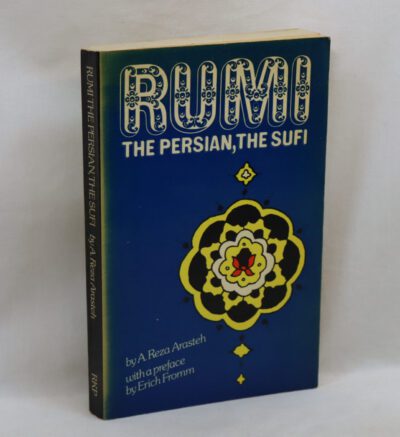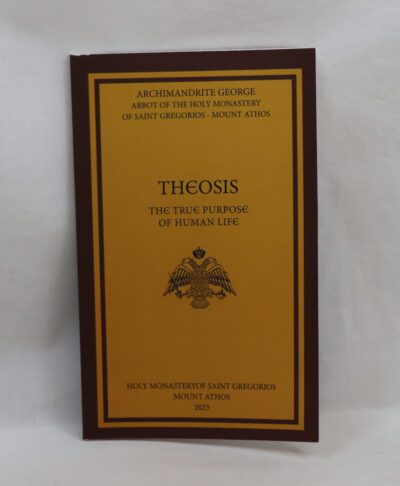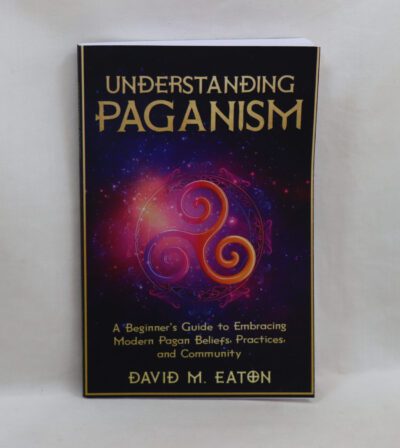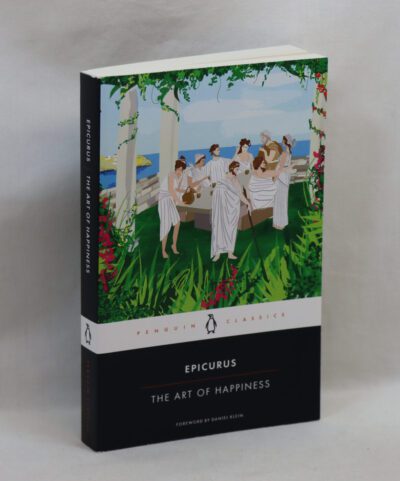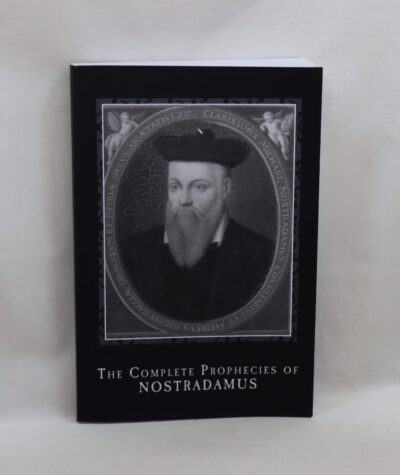The Nicomachean Ethics of Aristotle.
By F H Peters
Printed: 1881
Publisher: C Kegan Paul & Co. London
| Dimensions | 14 × 20 × 4 cm |
|---|---|
| Language |
Language: English
Size (cminches): 14 x 20 x 4
Condition: Fine (See explanation of ratings)
Item information
Description
Navy cloth binding with gilt title on the spine.
-
F.B.A. provides an in-depth photographic presentation of this item to stimulate your feeling and touch. More traditional book descriptions are immediately available.
-
Note: This book carries the £5.00 discount to those that subscribe to the F.B.A. mailing list.
A nice clean book translated by a Victorian genius.
In his ethical treatises Aristotle offers a defense of the idea of eudaimonism (human flourishing or happiness) which is achieved as a result of human choice in search of excellence and the good life.
The Nicomachean Ethics is Aristotle’s best-known work on ethics: the science of the good for human life, that which is the goal or end at which all our actions aim. It consists of ten sections, referred to as books or scrolls, and is closely related to Aristotle’s Eudemian Ethics. The work is essential in explaining Aristotelian ethics.
Its theme is a Socratic question previously explored in the works of Plato, Aristotle’s friend and teacher, about how to best live. In Aristotle’s Metaphysics, he describes how Socrates, the friend and teacher of Plato, turned philosophy to human questions, whereas pre-Socratic philosophy had only been theoretical. Ethics, Aristotle claimed, is practical rather than theoretical, in the Aristotelian senses of these terms. It is not merely an investigation about what good consists of, but it aims to be of practical help in achieving the good.
It is connected to another of Aristotle’s practical works, Politics, which reflects a similar goal: for people to become good, through the creation and maintenance of social institutions. Ethics is about how individuals should best live, while politics adopts the perspective of a law-giver, looking at the good of a whole community.
The Nicomachean Ethics had an important influence on the European Middle Ages, and was one of the core works of medieval philosophy. As such, it was of great significance in the development of all modern philosophy as well as European law and theology. Aristotle became known as “the Philosopher” (for example, this is how he is referred to in the works of Thomas Aquinas). In the Middle Ages, a synthesis between Aristotelian ethics and Christian theology became widespread, as introduced by Albertus Magnus. The most important version of this synthesis was that of Thomas Aquinas. Other more “Averroist” Aristotelians such as Marsilius of Padua were also influential.
Until well into the seventeenth century, the Nicomachean Ethics was still widely regarded as the main authority for the discipline of ethics at Protestant universities, with over fifty Protestant commentaries published before 1682. During the seventeenth century, however, authors such as Francis Bacon and Thomas Hobbes argued that the medieval and Renaissance Aristotelian tradition in practical thinking was impeding philosophy.
Interest in Aristotle’s ethics has been renewed by the virtue ethics revival. Recent philosophers in this field include Alasdair MacIntyre, G. E. M. Anscombe, Mortimer Adler, Hans-Georg Gadamer, and Martha Nussbaum.
Parts of the Nicomachean Ethics overlap with Aristotle’s Eudemian Ethics: Books V, VI, and VII of the Nicomachean Ethics are identical to Books IV, V, and VI of the Eudemian Ethics. Opinions about the relationship between the two works differ. One suggestion is that three books from Nicomachean Ethics were lost and subsequently replaced by three parallel works from the Eudemian Ethics, which would explain the overlap. Another is that both works were not put into their current form by Aristotle, but by an editor.
No consensus dates the composition of the Nicomachean Ethics. However, a reference in the text to a battle in the Third Sacred War in 353 BCE acts as a terminus post quem for that part of the work. The traditional position, held for example by W. D. Ross, is that the Nicomachean Ethics is a product of the last period of Aristotle’s life, during his time in Athens from 335 BCE until his death in 322 BCE.
According to Strabo and Plutarch, after Aristotle’s death, his library and writings went to Theophrastus (Aristotle’s successor as head of the Lycaeum and the Peripatetic school). After the death of Theophrastus, the library went to Neleus of Scepsis.
The Kingdom of Pergamon conscripted books for a royal library, leading the heirs of Neleus hid their collection in a cellar to prevent its seizure. The library remained there for about a century and a half, in conditions that were not ideal for document preservation. On the death of Attalus III, which also ended the royal library ambitions, the existence of Aristotelian library was disclosed, and it was purchased by Apellicon and returned to Athens in about 100 BCE.
Apellicon sought to recover the texts, many of which were degraded by their time in the cellar. He had them copied into new manuscripts, and used his best guesswork to fill in the gaps where the originals were unreadable.
When Sulla seized Athens in 86 BCE, he seized the library and transferred it to Rome. There, Andronicus of Rhodes organized the texts into the first complete edition of Aristotle’s works (and works attributed to him). These relics form the basis of present-day editions, including that of the Nicomachean Ethics.
Aspasius wrote a commentary on the Nicomachean Ethics in the early 2nd century CE. It suggests “that the text [at that time] was very like what it is now, with little or no difference, for instance, of order or arrangement, and with readings identical for the most part with those preserved in one or other of our best [extant manuscripts].” Aspasius noted “the existence of variants—which shows that there was some element of uncertainty as to the text even in this comparatively early stage in the history of the book.”
The oldest surviving manuscript is the Codex Laurentianus LXXXI.11 (referred to as “Kb”) which dates to the 10th century.
Aristotle was the first philosopher to write ethical treatises, and begins by considering how to approach the subject. He argues that the correct approach for subjects like Ethics or Politics, which involve a discussion on beauty or justice, is to start by considering what would be roughly agreed to be true by people of good upbringing and substantial life experience, and then to work from those intuitions toward a more rigorous understanding. Over the course of the Ethics, Aristotle alternates between a theoretical/systematic approach to formalizing ethics and an empirical approach of consulting opinion, prior philosophical or literary works, and linguistic clues.
Aristotle’s ethics is said to be teleological, in that it is based on an investigation into the telos, or end, of a human. In Aristotle’s philosophy, the telos of a thing “can hardly be separated from the perfection of that thing”, and “the final cause of anything becomes identical with the good of that thing, so that the end and the good become synonymous terms”.
Taking this approach, Aristotle proposes that the highest good for humans is eudaimonia, a Greek word often translated as “flourishing” or sometimes “happiness”. Aristotle argues that eudaimonia is a way of taking action (energeia) that is appropriate to the human “soul” (psuchē) at its most “excellent” or virtuous (aretē). Eudaimonia is the most “complete” aim that people can have, because they choose it for its own sake. An excellent human is one who is good at living life, who does so well and beautifully (kalos). Aristotle says such a person would also be a serious (spoudaios) human being. He also asserts that virtue for a human must involve reason in thought and speech (logos), as this is a task (ergon) of human living.
After proposing this ultimate end of human activity, Aristotle discusses what ethics means. Aristotelian Ethics is about how specific beneficial habits (virtues) enable a person to achieve eudaimonia and how to develop a virtuous character (ethikē aretē). He describes a sequence of necessary steps: The first step is to practice righteous actions, perhaps under the guidance of teachers, in order to develop good habits. Practiced habits form a stable character in which those habits become voluntary, which then achieves eudaimonia.
The Greek word ēthos, or “character”, is related to modern words such as ethics and ethos. Aristotle does not equate character with habit (ethos in Greek, with a short “e”) because character involves conscious choice. Instead, character is an hexis like health or knowledge—a stable disposition that must be maintained with effort. However, good habits are a precondition for good character.
Aristotle reviews specific ways in which people are thought worthy of praise or blame. He describes how the highest types of praise require having all the virtues, and these in turn imply more than good character, indeed a kind of wisdom. The four essential virtues are:
-
Magnanimity (“great soul”), which requires a correct attitude towards the honor this involves, in Book IV.
-
Justice, as established by a good ruler in a good community, in Book V.
-
Phronesis, or practical judgment, in Book VI.
-
Friendship, in Book VIII.
(The Eudemian Ethics VIII.3 also uses the word “kalokagathia”, the nobility of a gentleman (kalokagathos), to describe this same concept of a virtue encompassing all the moral virtues.)
The view that praiseworthy virtues in their highest form, even virtues such as courage, require intellectual virtue, is a theme Aristotle associates with Socrates; it is portrayed in the Socratic dialogues of Plato. Aristotle professes to work differently from Plato by trying to start with what well-brought up men would agree with, and to take a practical approach, but by Book VII Aristotle argues that the highest of virtues is not a practical one: contemplative wisdom (theōria). However, achieving wisdom requires all the virtues of character, or “moral virtues”.
Aristotle’s view that the highest good for man has both a practical and theoretical side is in the tradition of Socrates and Plato—but in opposition to pre-Socratic philosophy. As Ronna Burger points out: “The Ethics does not end at its apparent peak, identifying perfect happiness with the life devoted to theōria; instead it goes on to introduce the need for a study of legislation, on the grounds that it is not sufficient only to know about virtue, but one should try to put that knowledge to use.” At the end of the book, according to Burger, the thoughtful reader is led to understand that “the end we are seeking is what we have been doing” while engaging with the Ethics.
Want to know more about this item?

Related products
Share this Page with a friend


